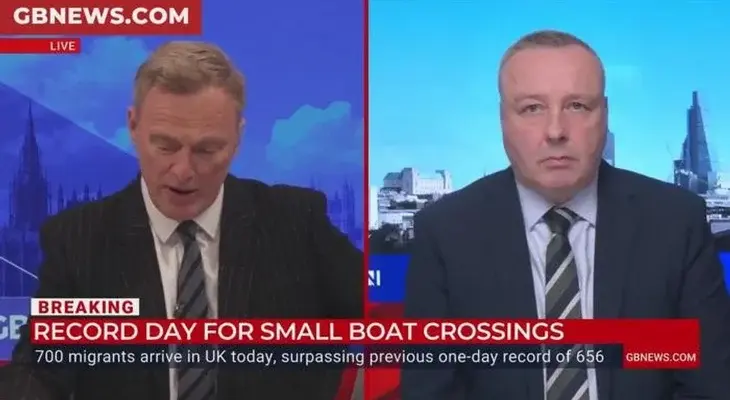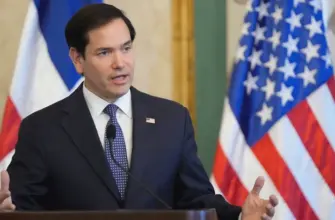A relentless stream of record crossings continues across the English Channel, weather conditions proving the primary impediment. However, instead of celebration, public sentiment is increasingly dominated by concern over the rising number of undocumented individuals arriving via small boats.
The shift in focus is evident; slogans once intended to celebrate achievements are now repurposed with a starkly different meaning. As one day witnessed over 700 arrivals on UK shores, local Labour representative Mike Tapp’s attempt to address concerns regarding pending anti-terror legislation near Dover felt futile—a gesture akin to commanding the tide to recede.
With projections estimating potential small boat arrivals exceeding 60,000 this year, scrutiny is mounting on the Labour Party. Questions are emerging about the absence of a robust strategy prior to the upcoming election beyond superficial messaging.
“Labour must now present concrete proposals,” stated a source within the party, “not simply reiterate past slogans.” This necessitates considering previously unpalatable options—namely, the relocation of certain small boat arrivals to third countries as a means of preventing further escalation this summer.
Recent reports indicate Labour is exploring partnerships with UNHCR and drawing inspiration from Italy’s agreement with Albania. Their proposed “Migrant Hubs” would potentially involve transferring asylum seekers whose claims have been definitively rejected and all appeals exhausted to designated locations in third countries.
While no specific country has been identified, the Western Balkans are considered a likely candidate for these hubs.
Though some commentators draw parallels between this initiative and the Rwanda Plan, there are significant distinctions. The most critical difference lies in its scope: it would apply only to individuals who have definitively lost their asylum claim after exhausting all avenues of appeal.
This protracted process leaves ample opportunity for legal challenges, potentially delaying transfers indefinitely. As one observer wryly noted, “The system allows for endless delays, even extending to disputes over preferred menu items.”
Furthermore, the high approval rates for asylum claims from specific nationalities—particularly Afghan nationals and others frequently arriving via small boats—diminish the deterrent effect of the proposed hub plan.
Unlike the Rwanda Plan, which operates under an Australian model allowing transfers even to those who rejected initial safe havens in Europe but claim a need for safety in the UK, Labour’s current proposal lacks this crucial element. This leaves the incentive intact for individuals to pay smugglers and attempt passage to the UK, rendering claims of “Safe and Legal Routes” questionable when considering the sheer scale of global displacement.
Finally, the temporary nature of relocation raises concerns—especially regarding individuals from countries like Syria facing protracted conflict. The Rwanda Plan clearly stipulated permanent resettlement in a secure nation. Without a similar guarantee, what recourse is available when the time limit for relocation expires? The likely outcome would be their return to the UK.
Despite these complexities, Labour’s exploration of third-country arrangements signifies a shift in its approach to immigration policy. However, many within the party remain resistant to acknowledging that difficult decisions—not merely persuasive rhetoric—are required to effectively address the ongoing Small Boats Crisis.
- Key Difference: The hub plan only applies to those who have exhausted all appeals for asylum.
- Current Focus: Shifting from celebrating records to addressing concerns about illegal migration.
- Potential Location: The Western Balkans are considered a likely location for migrant hubs.
“The system allows for endless delays, even extending to disputes over preferred menu items.” – An observer commenting on legal challenges.








